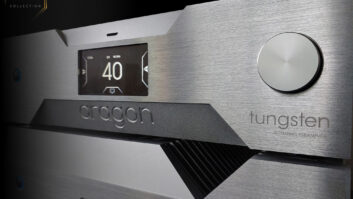WASHINGTON – Free trade was the theme of the first day of the Consumer Electronics Association (CEA) Washington Forum, highlighted by a morning keynote by Secretary of Commerce Carlos M. Gutierrez.
CEA is pushing the importance of free trade due to the importance it has for the consumer electronics industry and the economy as a whole, and the fear that during this Presidential election year much has been said against NAFTA and other such agreements, especially by Democratic candidates Barack Obama and Hillary Clinton.
Guiterrez, the former CEO of Kellogg’s, said more free trade agreements like proposed deals with Columbia, South Korea and Panama are vital. “Standing still and not approving such deals is just like falling behind,” against such competitors and China and the European Union who continue to be aggressive in the area.
Guiterrez reported that last year U.S. exports were up 13 percent and during the past four years exports have increased more than 10 percent a year. He noted, “Forty six percent of our exports are due to [now 14] free trade agreements” and when asked, he said an equivalent percent of imports was generated from those deals.
He provided the example that since 1992, Columbian exports have come to the U.S. without a tariff but currently “The U.S. pays 15 percent tariffs to export to Columbia. Our competitors like the idea that we have not signed that [free trade] agreement yet.”
In addressing other economic concerns in the CE industry’s focus, Guiterrez said that with the digital TV transition of Feb. 17, 2009, “we want people to get the word that this will happen.” He reported that 9 million converter box coupons of $40 each have been ordered, which shows the education process “is working … but we need to do more.”
In a panel called “What Trade Means in Real Life Terms to Real Life Businesses,” Sean Spicer, assistant U.S. trade representative for the Executive Office of the President, said in today’s world, “A product may have a chip in it from Pennsylvania, with software designed in Washington State, whose marketing plan was developed somewhere else in the U.S., but was built in China. Is that a Chinese product because where it was assembled? It is not as simple as saying this product came from this state and this factory.”
In an ardent defense of free trade, Kathy Gornik, president of Thiel Audio Products, said, “The existence of my company is based on our ability to buy and sell anywhere in the world. When we sell or buy from China, I think of the market. I think of the people. We don’t buy or sell to the Chinese government. Overseas consumers are the same as us. They look at features, price and reliability of products, not where they are manufactured.”
Robert Scott, international programs director for the Economic Policy Institute, noted that in free trade “there are winners and losers” and the losers are usually those with less than a college education, while college educated workers usually benefit. Those displaced employees have to go to low paying jobs, “like health care or retail” where health benefits and wages are lower. Scott thinks more should be done to help retrain displaced workers due to trade and that billions more should be spent by the U.S. to do so.
Tonight, CEA holds its fourth annual Digital Patriots Dinner, at the J.W. Marriot, here, honoring Senator Patrick Leahy (D-Vt.), Congressman Tom Davis (R-Va.), Ivan Seidenberg, chairman/CEO of Verizon Communications. Proceeds of the dinner go to the USO.













